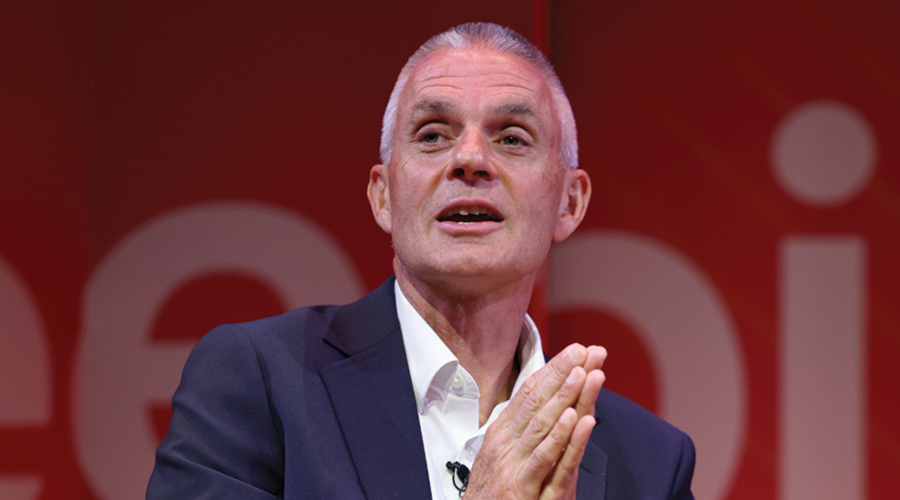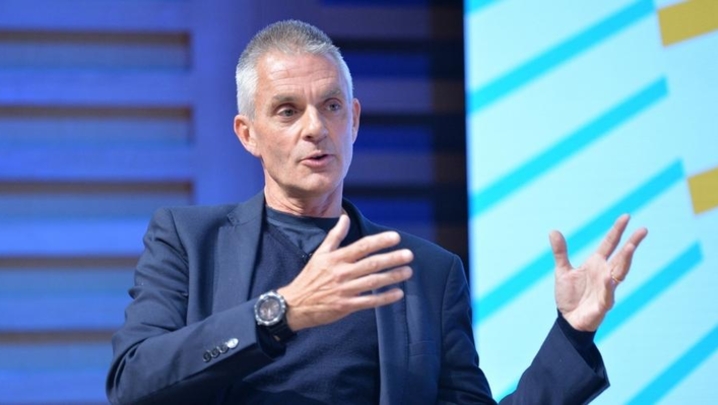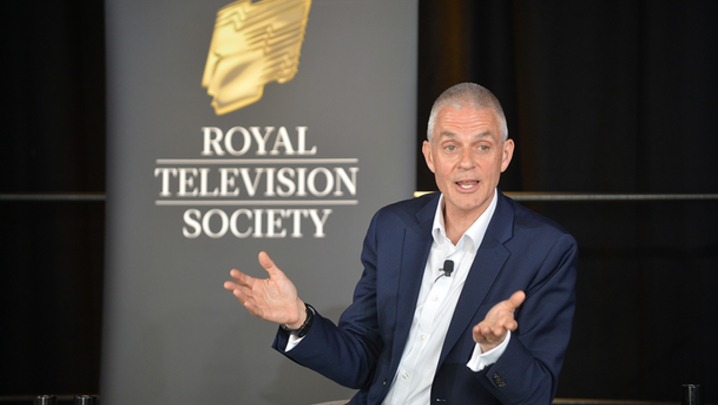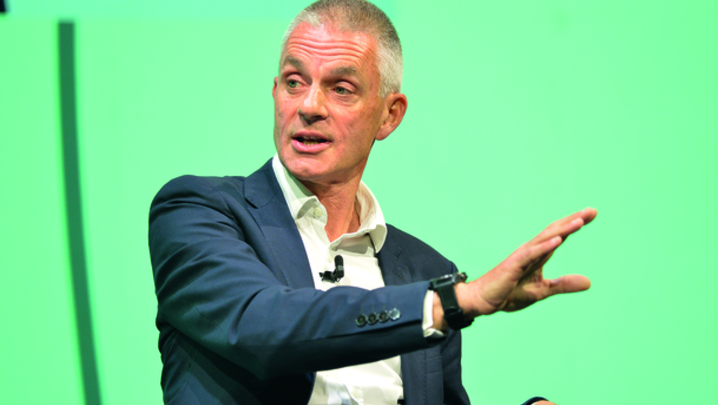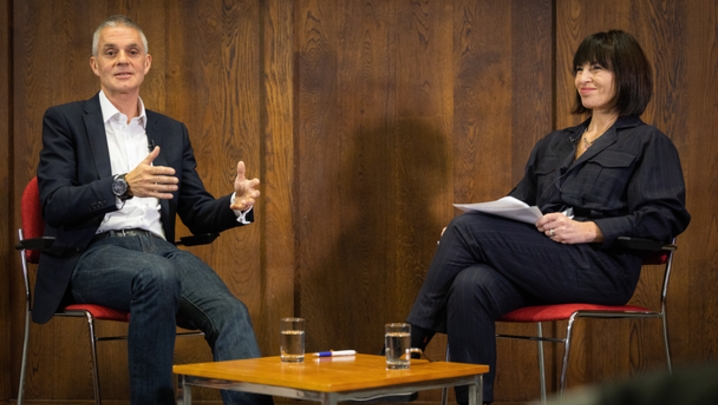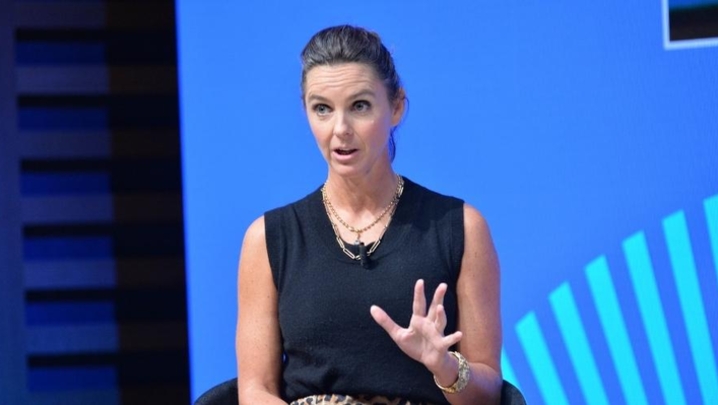The BBC Director-General took to the RTS London Convention stage the day after former BBC news presenter Huw Edwards received a six-month sentence, suspended for two years, for accessing indecent photographs of children as young as seven. Amol Rajan took Davie to task.
Q: Amol Rajan: How badly damaged is the BBC by the crimes of Huw Edwards?
A: Tim Davie: There’s no doubt that an affair like this impacts our reputation, and I don’t know yet in terms of the direct impact on trust…. People’s trust in the BBC is absolutely essential, and I hope we do the right things. I don’t think the public are stupid; they can see when we’re taking the right actions, acting in good faith and trying to get through things in a calm and fair manner.
Will Huw Edwards work for the BBC again?
This man has just been convicted of appalling crimes… I can’t see him working at the BBC again.
There’s a huge amount of Edwards in the BBC archives: what is going to happen to that?
I would never say never – there may be a documentary, a contextual piece, where we see images of people who are no longer working with us and have been, frankly, disgraced.
Why did the BBC Board and/or you decide to continue paying Edwards’ salary after you were informed in November that he had been arrested for potentially category A, B or C [sexual/indecency] offences?
It wasn’t the BBC Board. It was myself and the senior team. We wrestled with it… It was a very difficult call but we decided that pay continues until someone is charged. No one knew that gap was going to be so long.
Was that the right decision?
I think it was the right decision based on the [BBC’s] policies. We acted totally in good faith.
Have you asked for the [£200,000 salary] back?
We want the money back. We’ve asked for it back… There are discussions between legal teams, I believe, but that’s as far as we can go at this point.
When will you report on the findings of the review over Amanda Abbington’s allegations about Strictly [Come Dancing]?
We’re pretty close…
Wouldn’t it have been useful to report before the new Strictly series started? Did the senior executives at Strictly take their eye off the ball when there was a culture of bullying underneath them?
We need to do the work on the review and see before I start opining….
There are lots of people in this industry who say one of the big challenges is the idea that talent gets indulged and excused…
It’s a constant work in progress…. I am optimistic that the place is changing…. The environment is different – this is why it hurts so much when these things happen. But we’re only as good as our actions.
“We are repurposing the industry, and I think that is amazing”
In the last decade, according to Ofcom, daily broadcast TV viewing for 16-to-24-year-olds fell by 78%. What are you doing to get [this group] not just engaging with BBC content but paying a licence fee?
The iPlayer is up 20% year on year. We are fully reshaping the BBC. The biggest number I get every morning is how many people went online… We are repurposing the industry, and I think that is amazing.
What are you doing to offset the licence fee decline, to stop the… BBC from getting smaller?
We’re still fighting for a universal service, and that’s the binary question…. [I’m] trying to bring everyone in – 71% of 16-34s come to us every week; we’re not out of the game… Our numbers are really good. It’s not rocket science: if you [have]… big titles [such as] Race Across the World, Traitors, Gladiators… you get young audiences.
What are the pros and cons of a mutual model for the BBC?
I am intrigued by [the idea of] a more participative BBC… If you look around the world, you can see where institutions are being weaponised; I think it is a much more toxic, difficult environment. So [I like] the idea of maintaining our independence and having people participate in the BBC – the BBC is for you. It’s here for everyone. I’m very much of the mindset that we’re here to serve, not talk down to people.
Does the BBC have the money to continue funding the World Service?
I’ve been clear: the World Service needs to be funded outside the licence fee… We will continue to support the World Service at the level it’s at, and the Government put in £104m as well, so you’re nearly at £300m [in total]. That is enough to sustain [the service]…. I think the Government and us have a real choice [to make] around [using] soft power and [boosting] the UK’s mojo abroad.
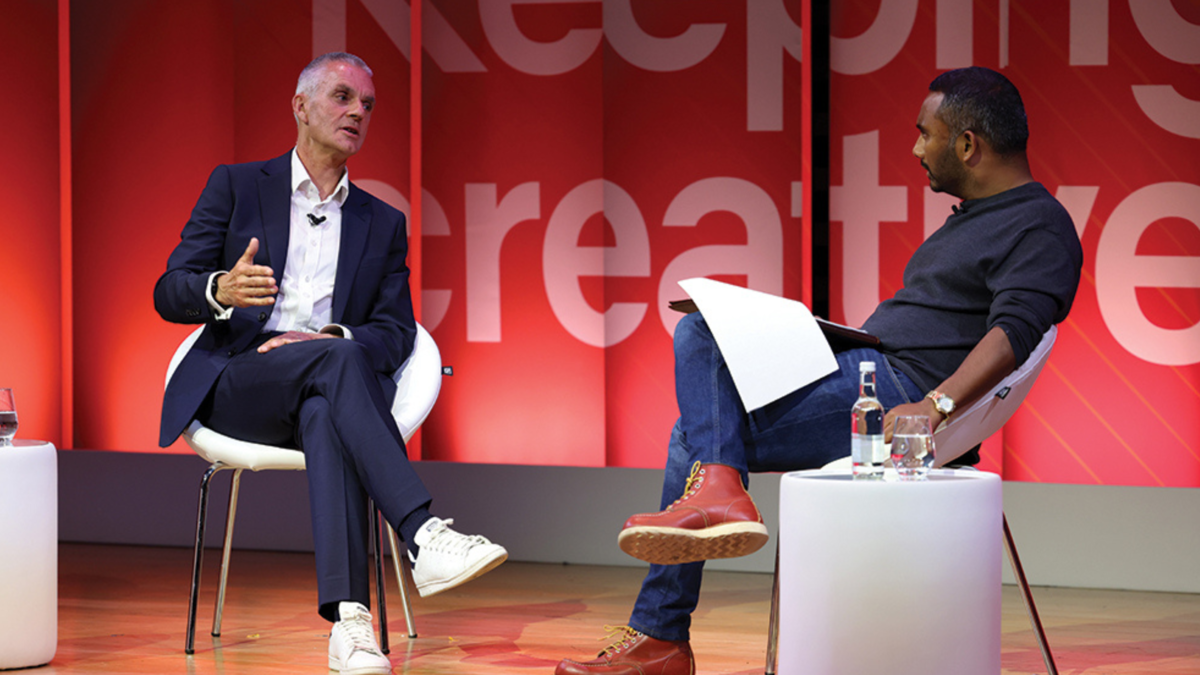
Half the BBC Board and the Chair are appointed by the Government. Do you think the BBC Board should appoint the next Chair, independent of Government?
I’ll leave that to others… but the independence of the BBC, without fear or favour, is essential. We should be accountable to the public through the mechanisms of parliament but we should be utterly independent editorially. We need an independent BBC, and we need to fight for that.
Lisa Nandy [Culture Secretary] is here on the stage later: what’s your message to her?
We’ve got the skills … but it’s about money. You’ve got to make the money work – that’s really important… We are in a tough spot; I go through the UK, and more and more medium and small indies are coming up to me and going: “We’re desperate to keep the BBC in business because [we’re] feeling the pressure, there’s less [commissioning] coming through, we’ve got a lot of [spare] studio space.” But long-term, beyond that, I’m very optimistic because of the quality of the skills, thinking and storytelling here.
Session Three, ‘UK keynote: Tim Davie’. The BBC Director-General, was interviewed by journalist and presenter Amol Rajan. The producer was Sue Robertson. Report by Matthew Bell.

